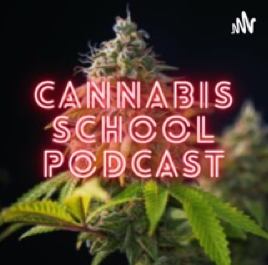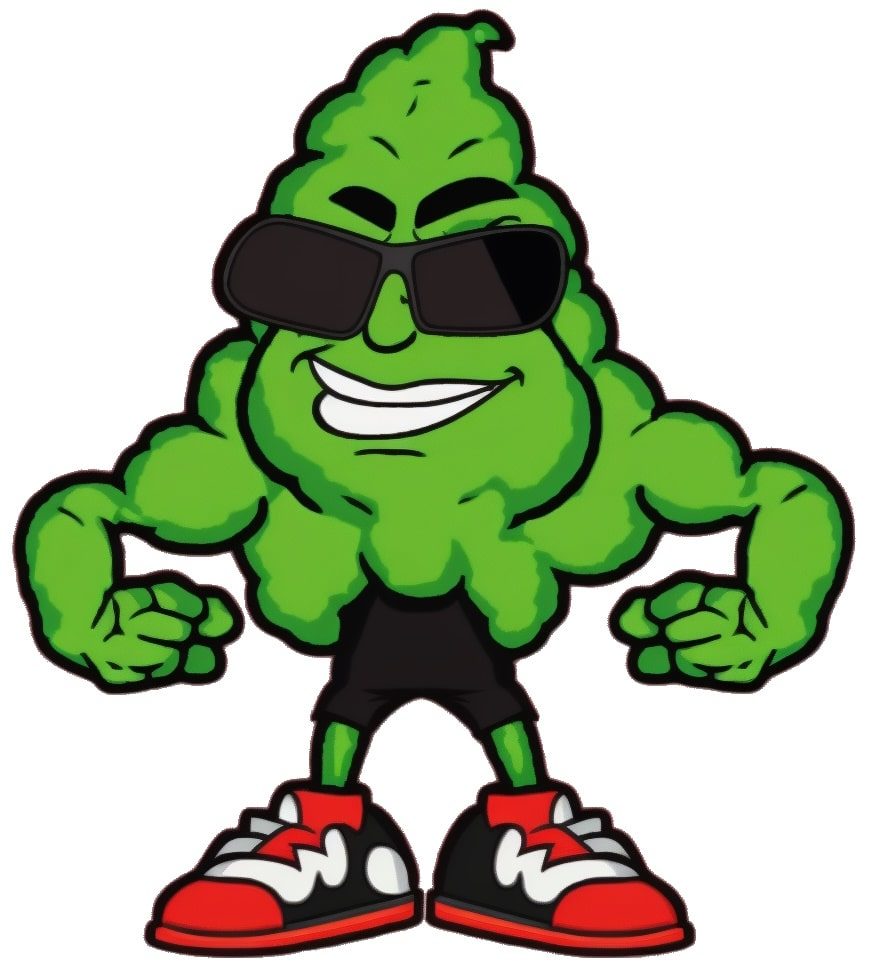How to talk about Cannabis can be a tricky path to navigate.
You see, when it’s time to broach the subject, most folks’ number one hurdle is… well, knowing how to start the conversation in the first place.
They’re at a loss for words. But this is what separates those who remain silent from cannabis advocates. If you don’t know how to discuss cannabis effectively and responsibly, you’ll never reach this level of advocacy.
Talking about cannabis isn’t easy, friends.
I’ve heard stories of people trying their best but ending up offending someone or spreading misinformation unintentionally. Now they’re hesitant even bringing up Cannabis.
Cannabis School Podcast – Cannabis 101 – How you can talk to non cannabis users about cannabis

Higher education was never so easy. Cannabis School is a chilled out, entertaining show, promoting responsible conversations about personal consumption.
Table of Contents:
- Understanding the Misconceptions about Cannabis
- Personal Experiences with Cannabis
- Medical Benefits of Cannabis
- Comparing Prescription Drugs and Cannabis Use
- Users in Society
- Others About Cannabis Usage
- FAQs in Relation to How to Talk About Cannabis
- Conclusion
Understanding the Misconceptions about Cannabis
The dialogue around cannabis may be confused by wrong ideas, particularly concerning its effects on health and performance. Let’s start talking about these common misunderstandings.
The Impact of Cannabis on Lung Health
A widely held belief is that smoking marijuana harms your lungs in a similar way as tobacco smoke intake does. This assumption isn’t entirely accurate though; research indicates heavy cannabis smokers don’t face an increased risk for chronic obstructive pulmonary disease (COPD), unlike those who regularly smoke cigarettes.
It may not be entirely risk-free to breathe in marijuana smoke. It’s important to note any form of smoked substance could lead to respiratory issues over time, but this risk appears significantly lower compared with regular tobacco use.
Cannabis as a Performance-Enhancing Drug
An additional misconception surrounds the usage of low THC cannabis plants and other products being touted as athletic performance enhancers. While some athletes may report benefits from using legal CBD supplements or medical cannabis products before training sessions or competitions, scientific evidence supporting such claims remains scanty at best.
In reality, most studies suggest cannabinoids like cannabidiol extract might help manage pain and inflammation post strenuous activity rather than boost physical abilities during exercise itself. Whether you’re recreational users or professional athletes considering incorporating substances into their regimen should have all these facts at hand while making decisions regarding substance use.
Discover the truth about cannabis. Let’s debunk misconceptions on its impact on health and performance. Find out what research says about lung health and athletic enhancement. Get the facts now. #CannabisMisconceptions #HealthandPerformanceClick to Tweet
Personal Experiences with Cannabis
Discussing marijuana can be a difficult endeavor, particularly when faced with misbeliefs and stereotypes. Sharing your own cannabis journey can help shatter the stigmas surrounding it.
Let’s dive into how sharing your own journey with cannabis – whether as a recreational user or someone who benefits from medical cannabis products – can help foster understanding and acceptance.
Using Personal Stories to Break Stigmas
The first step? Sharing your story. Your narrative is more than just words; it’s proof that shatters preconceived notions about people who use marijuana.
Your experience might show others that users aren’t confined to one demographic – they’re doctors, teachers, artists…you name it. And many have found relief in medical cannabis, where traditional treatments fell short due to conditions like chronic pain or mental illness.
You also highlight responsible usage by discussing adherence to local laws and regulations such as possessing valid authorization cards for using medicinal marijuana.
How Family Reactions Influence Perceptions
Families play a pivotal role in shaping our views on numerous topics including consumption habits around substances like weed. Acceptance varies greatly among families depending upon their exposure level towards information regarding low THC levels present within legal CBD supplements versus synthetic cannabinoids which pose numerous health risks according various studies conducted over years.
This dialogue helps both recreational users seeking acceptance along patients choosing safer CBD products compared conventional drugs posing potential harms per several researches done on cannabidiol extract effects against opioids side-effects.
To start talking effectively without overwhelming them requires patience coupled accurate knowledge like data showing smoke intake differences between vaping stronger strains traditionally consumed leading failing drug screen tests despite being under permissible limits set recent stronger CBD regulations introduced across states.
Key Takeaway:
Sharing personal experiences with cannabis can break down misconceptions and stereotypes. By highlighting diverse users and the medical benefits, you can foster understanding and acceptance. Family reactions influence perceptions, so educating them on CBD’s safety compared to conventional drugs is crucial for effective dialogue.
Medical Benefits of Cannabis
In the midst of ongoing debates and misconceptions, it’s crucial to shed light on the medical benefits associated with cannabis. This section will delve into scientific evidence supporting medicinal uses for conditions such as chronic migraines or herniated discs.
US government’s patent validating medical benefits
A significant turning point in understanding the therapeutic potential of cannabinoids came when the US Department of Health and Human Services filed a patent (No. 6,630,507).
This statement from their patent highlights that these compounds can be beneficial for neurodegenerative disorders like Alzheimer’s and Parkinson’s disease.
Case study – Parents using medicinal marijuana
The story of Charlotte Figi is an example where parents turned towards low THC cannabis plants oil extract after being dissatisfied by ineffective pharmaceutical treatments.
“The results were remarkable – within days she experienced fewer seizures and improved cognitive function.”
This led many patients choose safer CBD products over synthetic cannabinoids which pose numerous health risks according to several studies conducted recently.
Comparing Prescription Drugs and Cannabis Use
Certain communities tend to accept prescription medications readily while having strict rules against substances like alcohol or drugs including cannabis. This segment explores comparisons between commonly prescribed synthetic opioids versus natural alternatives like marijuana.
The hypocrisy behind accepting synthetic opioids but rejecting natural alternatives
Synthetic opioids carry serious risk factors including addiction, overdose deaths whereas organic CBD products derived from legal CBD supplements that THC levels regulated pose significantly lesser threats. However, due largely misconceptions surrounding plant itself rather than understanding actual science behind it, many remain resistant towards acceptance. It becomes important start talking openly about these issues dispel myths promote healthier choices amongst users especially those dealing mental illness other psychiatric issues where relief can be obtained through cannabidiol extract without fear failing drug screen tests provided one possesses valid authorization card purchased local dispensaries under stronger regulations currently place across country.
Key Takeaway:
Despite misconceptions, scientific evidence supports the medical benefits of cannabis for conditions like chronic migraines and neurodegenerative disorders. Comparisons between synthetic opioids and natural alternatives highlight the hypocrisy in accepting one while rejecting the other due to misunderstandings about cannabis. Open dialogue is crucial to dispel myths and promote healthier choices for those seeking relief through cannabidiol extract.
Comparing Prescription Drugs and Cannabis Use
The medical landscape is changing rapidly, with many individuals now opting for natural alternatives like cannabis over synthetic opioids. But the acceptance of these two types of drugs varies greatly in society, creating an intriguing comparison.
The hypocrisy behind accepting synthetic opioids but rejecting natural alternatives
Synthetic opioids are often prescribed by doctors to manage pain. However, they carry numerous health risks including addiction and overdose potential. Despite this fact, their use is widely accepted because they’re legal and administered under professional supervision.
In contrast, medical cannabis products, which have been shown effective in managing chronic pain without causing dependency or fatal overdoses are still viewed negatively due to long-standing stigmas about marijuana’s impact on mental illness or its role as a gateway drug.
This glaring discrepancy between societal perceptions towards prescription drugs versus medical cannabis reveals our collective bias when it comes to therapeutic substances – one that clearly favors riskier options simply because they’ve been sanctioned by mainstream medicine.
Cannabis vs Alcohol: Long term effects comparison
Beyond comparing prescription medications with cannabis use, we should also examine alcohol consumption – another substance that enjoys widespread social approval despite well-documented harmful effects. Regular drinking can lead to serious conditions such as liver disease while moderate usage of low THC cannabis plants doesn’t pose similar threats according to several studies.
- A study published in Scientific Reports found alcohol was 114 times more dangerous than marijuana at the individual level (source here). This reinforces the need for stronger CBD regulations so patients choose safer CBD products instead of resorting to potentially damaging substances like excessive alcohol or avoiding synthetic cannabinoids failing standard drug screen tests.
- Moving forward, it’s essential that discussions around recreational use include accurate information regarding the relative safety profiles of different substances. This will help debunk myths surrounding marijuana and encourage healthier choices among those seeking relief from physical discomfort and psychological issues.
- To make sure you’re providing value in your content, it needs to be good. Very, very good.
- Your brand’s name is tied to how people associate your services with quality and what you’re putting out there.
- If your brand is unable to achieve the desired result, it may be wise to reconsider which keywords you are targeting. But with the correct expertise, your business can outperform most of its competition (and beyond).
Key Takeaway:
Society’s acceptance of synthetic opioids while rejecting medical cannabis reveals a bias towards riskier options. Comparing alcohol and cannabis, studies show that moderate cannabis use poses fewer long-term health risks than regular drinking. Accurate information is crucial to debunk myths and promote healthier choices for pain relief and mental well-being.
Users in Society
Cannabis users are often painted with a broad brush, labeled as lacking motivation or intelligence. However, this stereotype fails to consider the wide array of successful individuals who incorporate cannabis into their daily routines due to an understanding of its long-term impacts compared to other substances.
Profiles: Successful People Who Utilize Marijuana Regularly
The world isn’t short on high-profile figures who’ve openly embraced their regular use of cannabis. Take for instance Snoop Dogg; his unabashed advocacy and personal usage have made him synonymous with marijuana culture.
Sir Richard Branson is another notable figure in this regard. The founder of Virgin Group – which controls over 400 companies worldwide – not only supports decriminalization efforts but also admits using it personally in several interviews.
Challenging Stereotypes: The Lazy Stoner Myth
We’ve all heard about the “lazy stoner” myth suggesting that marijuana users are unproductive and unmotivated. This blanket statement overlooks the diverse range of people responsibly incorporating cannabis into their lives.
A study from University College London found no significant difference between non-users and heavy users once factors like age were accounted for (UCL Study). Additionally, research published by Frontiers Journal contradicts this lazy stoner myth showing medical cannabis patients reporting improvements in cognitive functioning (Frontiers Journal).
- Busting Misconceptions Through Education:
- Educational Resources: There’s a wealth of educational resources available online offering accurate information regarding numerous CBD products including legal CBD supplements that THC levels fall within acceptable limits. These can be used effectively debunk myths associated Cannabis consumption habits.
- Mental Health Considerations: If you’re considering integrating low THC cannabis plants or any form cannabidiol extract your routine, remember consult healthcare provider especially if dealing psychiatric issues mental illness. It’s important keep mind potential harms recreational use may pose certain individuals based upon individual health profiles.
- In order facilitate open conversations around controversial topics such as these, one must approach situation confidence knowledge respect particularly when interacting conservative backgrounds where misconceptions might deeply ingrained. This chapter aims provide strategies communicate others regarding safe responsible consumption practices without overwhelming them bit by bit taking things slow pace suited audience comfort level.
Key Takeaway:
Don’t judge cannabis users based on stereotypes. Successful individuals like Snoop Dogg and Richard Branson openly embrace cannabis, challenging the lazy stoner myth. Education is key to debunking misconceptions and promoting responsible consumption practices.
Others About Cannabis Usage
Talking about cannabis usage can be a daunting task, especially when dealing with individuals from conservative backgrounds. However, the challenges faced in these conversations are actually pretty simple to overcome.
This section will guide you through effective strategies for communicating your consumption habits responsibly and safely.
Fuel Up on Knowledge
The first step towards any meaningful conversation is understanding what you’re talking about. So how do we build up our knowledge base around cannabis? How do we navigate topics like stronger CBD regulations, obtaining a cannabis authorization card or potential harms associated with misuse?
You need to make it your mission to learn everything there is about this versatile plant – its medical benefits as backed by numerous studies, legal aspects of recreational use and even the process patients go through to choose safer CBD products over prescription drugs due drug screen issues .
There IS proven scientific evidence supporting medicinal uses of cannabis plants and understanding them thoroughly is crucial before engaging in discussions regarding their use. And remember: Always keep learning.
Navigate Respectfully
To have an impactful dialogue around controversial subjects such as personal experiences using low THC levels or legal CBD supplements that meet regulated THC levels , one must respect differing perspectives while presenting theirs convincingly . But how does one achieve this balance ? It’s simpler than it seems .
- Acknowledge their beliefs without undermining them; let empathy lead the way.
- Showcase helpful harm-reduction tips related cannabidiol extract based on factual information rather than hearsay .
- Suggest local dispensaries where they could find organic cbd products instead potentially harmful synthetic ones ; provide options not ultimatums .
Unlock the secrets of cannabis with our comprehensive guide. From medical benefits to societal impact, we’ve got you covered. Dive in now and join the conversation. #CannabisGuide #MedicalMarijuana #SocietalImpactClick to Tweet
FAQs in Relation to How to Talk About Cannabis
What are 5 facts about cannabis?
Cannabis has been used for over 3000 years. It can help with pain relief, anxiety, and depression. The plant contains over 100 cannabinoids. Cannabis is both a recreational and medicinal substance. Lastly, it’s legal in some states but not federally.
What is the basic knowledge of cannabis?
Cannabis refers to a group of three plants known for their psychoactive properties: Cannabis sativa, Cannabis indica, and Cannabis ruderalis. Its primary compounds include THC (psychoactive) and CBD (non-psychoactive).
What questions to ask about cannabis?
You might inquire about its legality in your state or country, potential health benefits or risks associated with usage, different strains available and their effects or how to consume it responsibly.
Conclusion
Unraveling the misconceptions about cannabis is your first step to understanding its true nature.
You’ve learned that personal experiences can be powerful tools in breaking down stigmas and initiating open discussions.
Exploring the medical advantages of cannabis, backed up by scientific proof, has been thoroughly examined.
We delved into the hypocrisy behind accepting synthetic opioids but rejecting natural alternatives like marijuana.
You now know how successful individuals utilize this plant daily while debunking common stereotypes associated with regular users.
Talking about cannabis usage requires knowledge, respect, and confidence – something you’re equipped with after reading our guide on how to talk about Cannabis.
If you want to learn more or even grow your own weed responsibly and safely, consider visiting GreenBudGuru.com. It’s time for you to embark on a journey towards becoming a green bud guru yourself!
Originally posted 2023-07-23 18:13:20.


 James Alexander
James Alexander